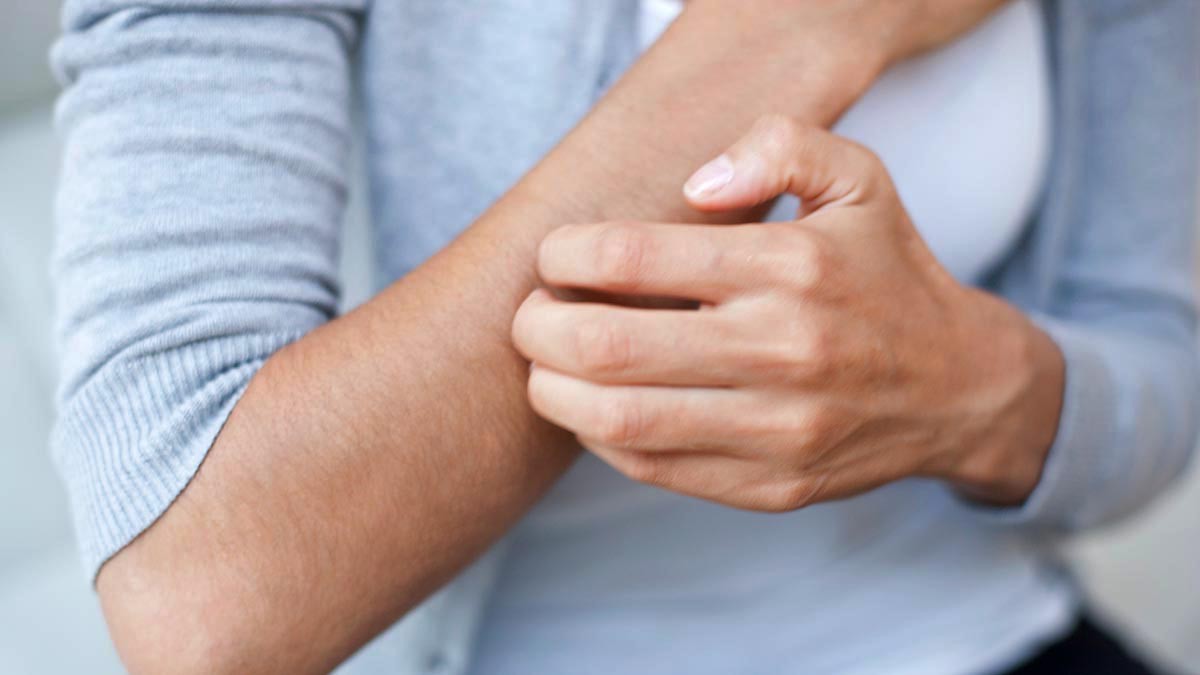How to treat skin rashes?
A skin rash, also called dermatitis, is an area of irritated or swollen skin. Many rashes are itchy, red, painful, and irritated. Some rashes can also lead to blisters or patches of raw skin. Rashes are a symptom of many different medical problems. Other causes include irritating substances and allergies. Certain genes can make people more likely to get rashes.
Sometimes, discovering what causes itching is easy and obvious (the poison ivy you accidentally touched while gardening). Other times, it's difficult to figure out what's causing that must-scratch-now sensation.
Put simply, you itch because your skin has receptors called pruri-ceptors (itch-sensing nerve endings) which get stimulated and, in turn, cause that itchy feeling.
As part of the immune response, your body releases substances called histamines, triggering the itch.
There's a deep-rooted evolutionary advantage to the itch: It's your body's way of letting you know ASAP that something (an allergen, a parasite like bed bugs or ticks, or a would-be intruder) is irritating your skin, the protective barrier between you and the outside world. [2]
Contact dermatitis is a common type of rash. It causes redness, itching, and sometimes small bumps. You get the rash where you have touched an irritant, such as a chemical, or something you are allergic to, like poison ivy.
Some rashes develop right away. Others form over several days. Although most rashes clear up fairly quickly, others are long-lasting and need long-term treatment.
Because rashes can be caused by many different things, it's important to figure out what kind you have before you treat it. If it is a bad rash, if it does not go away, or if you have other symptoms, you should see your health care provider. Treatments may include moisturizers, lotions, baths, cortisone creams that relieve swelling, and antihistamines, which relieve itching. [1]
An effective way to fight rashes in the long-run is to improve your diet and lifestyle.
For example, garlic and turmeric are able to boost our immune system and to protect us against common diseases. We'd also try to eliminate junk food, including soft drinks as they are actually anti-nutrients lowering the absorption of nutrients.
Exercising regularly is also a good way to help our lymphatic system to circulate white-cell and other immune system cells.
[1] https://www.bassadvancedurgentcare.com/post/5-home-remedies-for-an-itchy-rash
[2] https://www.prevention.com/health/a29388354/what-causes-itching/
Sometimes, discovering what causes itching is easy and obvious (the poison ivy you accidentally touched while gardening). Other times, it's difficult to figure out what's causing that must-scratch-now sensation.
Put simply, you itch because your skin has receptors called pruri-ceptors (itch-sensing nerve endings) which get stimulated and, in turn, cause that itchy feeling.
As part of the immune response, your body releases substances called histamines, triggering the itch.
There's a deep-rooted evolutionary advantage to the itch: It's your body's way of letting you know ASAP that something (an allergen, a parasite like bed bugs or ticks, or a would-be intruder) is irritating your skin, the protective barrier between you and the outside world. [2]
Contact dermatitis is a common type of rash. It causes redness, itching, and sometimes small bumps. You get the rash where you have touched an irritant, such as a chemical, or something you are allergic to, like poison ivy.
Some rashes develop right away. Others form over several days. Although most rashes clear up fairly quickly, others are long-lasting and need long-term treatment.
Because rashes can be caused by many different things, it's important to figure out what kind you have before you treat it. If it is a bad rash, if it does not go away, or if you have other symptoms, you should see your health care provider. Treatments may include moisturizers, lotions, baths, cortisone creams that relieve swelling, and antihistamines, which relieve itching. [1]
An effective way to fight rashes in the long-run is to improve your diet and lifestyle.
For example, garlic and turmeric are able to boost our immune system and to protect us against common diseases. We'd also try to eliminate junk food, including soft drinks as they are actually anti-nutrients lowering the absorption of nutrients.
Exercising regularly is also a good way to help our lymphatic system to circulate white-cell and other immune system cells.
[1] https://www.bassadvancedurgentcare.com/post/5-home-remedies-for-an-itchy-rash
[2] https://www.prevention.com/health/a29388354/what-causes-itching/

